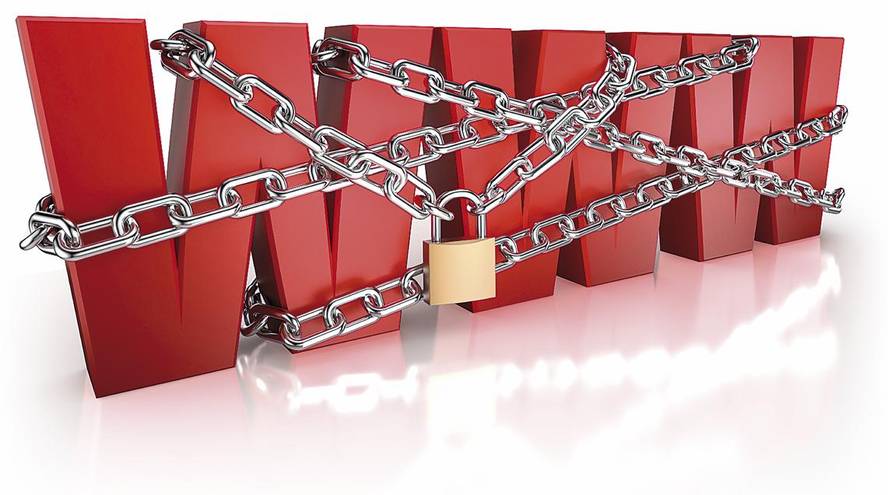Internet under the threat of law
The Internet has so far been a territory without sufficient standards. It has only been linked to the rules applicable to other content and communications, and the decentralized nature of the Internet and the international character hinders its regulation and control through the usual laws and media. For this reason, in recent years governments and other lobbies are pushing (and in some cases accepting) specific laws for the Internet.
The most well-known legislative project is probably the so-called ACTA (Anti-Counterfeiting Trade Agreement or Trade Agreement against Counterfeiting). This international agreement, masked in the aim of avoiding forgery, also opposes the dissemination of generic drugs and cultural products with copyright, proposing the creation of a new international organization (although in each of these issues there are international organizations that deal with them), the rigour in border controls, the obligation to monitor all communications to Internet providers, etc. The writing has been written by various institutions and groups of interest or lobby, which we can imagine, and has been signed by more than 30 countries, including Spain, France and the European Union, in January of this year, but none of them has turned it into law for the moment and therefore has not been launched. In many countries there have been great protests, especially in Europe (Poland, Slovenia, Sweden...).
Similar laws are being pushed on a more local level. In the US, for example, the music and film industries are fighting for such laws. In the last two years, at least four laws of these characteristics have been presented in their Senate: COICA ( Combating Online Infrement and Counterfeits Act or Act to Combat Violations and Legal Forgery Online), PIPA ( PROTECT IP Act or Intellectual Property Protection Act), SOPA ( Stop Online Piracy Act or Stop Act of Piracy Online) and Cyspa Sharact Distribution. These laws propose measures such as that payment entities, such as credit cards, may prescribe the non-processing of payments to a website, force the search engines to remove links to a website, block the access of Internet providers to certain websites if so requested; all the traffic information of their Internet providers (where they have navigated, written and received the levels of access, etc...) Share.
In Spain, in December of last year, in the first Council of Ministers of the Government of the PP, the law regulating Internet downloads was approved, promoted in the two previous years by the Government of the PSOE (hence the name given to the law, the Sinde-Wert Law, by the names of the ministers of culture of both governments). After years of exculpation by the judges of the web pages in which films, series and links are offered to download music (since sharing cultural content in Spain is legal if there is no profit), the Sinde-Wert Law empowered an Intellectual Property Committee to prevent the closure of the websites (and here we know what the preventive closures really are). Finally, because of its resistance, this point was suppressed and only the judge can close web pages, but quick trials will be held in the cases denounced by the Commission.
In France the Sarkozy government also enacted the HADOPTI Law in 2009. This law also empowers a commission to monitor Internet traffic and to cut the Internet connection in case of copyright breach (in the latest version of the law, the judge must approve the court of the connection). Web inventor Tim Berners-Lee very graphically explained the absurdity of this law at the WWW2012 Web as a human right congress? Round table. He said before that in some countries the hands were cut by stealing the sheep, but now things do not do so. Both hands and the Internet connection are used and needed for other things... Should you stop your siblings because a teenager has dropped some songs and can't do homework and work to their parents?
Another type of law can be a threat to the Internet: that of software patents. In the European Union software is not patentable, but from time to time the European Patent Office and some large software companies try to change the European patent law, fortunately, unsuccessfully (to date). However, in recent years, the Office is proceeding to the approval and registration of software patents, in order for its work at the time they achieve a change of law to be more advanced. In the US. The software can be patented and the situation is really kafkiana: very generic or tribal concepts are patented or already existing (online surveys, opening applications with click on icons, automatic responses to e-mails… are patented), large companies buy packages of patents between themselves... It is true that they are not normally used, but are found in a kind of "cold war", in which each one has his arsenal, "to beat just". In any case, if they began to open up judgments by crisis or software patents, or were approved also in Europe, it would end with the great innovation that occurs on the Internet, or with the equality of opportunities for small businesses to create new ideas and business.
These laws propose many wrong measures, but the worst, according to Tim Bernes-Lee, is the indiscriminate surveillance of communications and navigations. The violation of the right to privacy is very serious, but he also believes that democracy itself would also be in danger: those data could be cracked or stolen, the data of politicians could also be used to blackmail them, a corrupt government could use them against opposition, dissent or a corrupt official. Berners-Lee calls powerfully to protest against these laws and not to let them accept them. If they went ahead, not only would the Internet be the world of freedoms and opportunities that we know today: the lawful spread of culture would be prevented, many civil rights would be violated and democracy would be endangered. And the worst is that all this would not be in the name of security, but for maintaining the economic benefits of the cultural industry.







